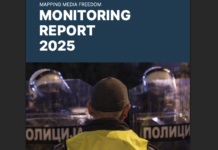Social media users in Turkey who spread “disinformation” online could be sentenced to between one and five years in prison under a new law to be proposed by the ruling Justice and Development Party (AKP), the Hürriyet daily reported on Monday, citing an AKP official.
According to Turkish Minute, Ali Özkaya, an AKP lawmaker and deputy chairman of the parliamentary Constitution Committee, indicated that the bill the AKP plans to bring to parliament in October will be “unique” to Turkey and will include sanctions for social media users.
The AKP’s move to draft a bill to regulate social media in a so-called attempt to fight off disinformation came after Turkish President Recep Tayyip Erdoğan called for immediate steps to control social media, arguing that social media platforms are used to “spread lies and misinformation.”
Özkaya said Turkey’s new law will model German legislation on social media, noting that Germany amended its law regarding terror and violence in 2017 and introduced four groups of crimes: “terrorism,” “sexual crimes and pornography,” “insulting freedom of religion and conscience” and “fabricated news, disinformation and misinformation.”
“Our work takes these groups into consideration,” he said.
Reminding that German authorities give social media operators 24 hours to remove any content found to be in violation of the law and a fine of up to 50 million euros if they fail to do so, Özkaya said German citizens are also allowed to file complaints about posts.
The new bill may also introduce bans on using social media platforms and fines for people who disseminate disinformation, according to Özkaya.
He said the bill will contain criminal penalties, noting that in Germany’s case, a social media user can be given prison sentence of between one and five years if they disseminate disinformation.
“Turkey must introduce these sanctions. We may introduce amendments to the Penal Code without limiting freedom of expression to ensure correct information is disseminated in social media posts,” he said.
The AKP government has been relentless in its crackdown on critical media outlets particularly after a coup attempt on July 15, 2016.
The move to introduce a tighter social media bill came after Director of Communications Fahrettin Altun announced that a new regulation would be implemented for media outlets that receive financial support from overseas, in response to the ultranationalist OdaTV news website’s story about media outlets and civil society organizations that receive funding from the US-based Chrest Foundation, such as Medyascope, Serbestiyet, 140 Journos and the Platform for Independent Journalism (P24).
In July, 2020 the Turkish parliament passed legislation at Erdoğan’s request, imposing far-reaching restrictions on social media platforms with over 1 million daily visitors in Turkey.
The law, which concerns YouTube, Facebook, Twitter, Instagram and TikTok, went into effect at the beginning of October and set forth progressive sanctions forcing social media platforms with more than 1 million connections a day to appoint a representative in Turkey with whom the Turkish authorities can resolve problems arising from cases of insult, intimidation and violation of privacy.
Although giant social media companies such as YouTube, Facebook and Twitter initially resisted appointing local representatives to Turkey, they conceded after they were fined earlier this year.
The law was criticized by human rights defenders and critics including Amnesty International, Human Rights Watch, Reporters Without Borders and the UN, who expressed concern over the government’s move.















